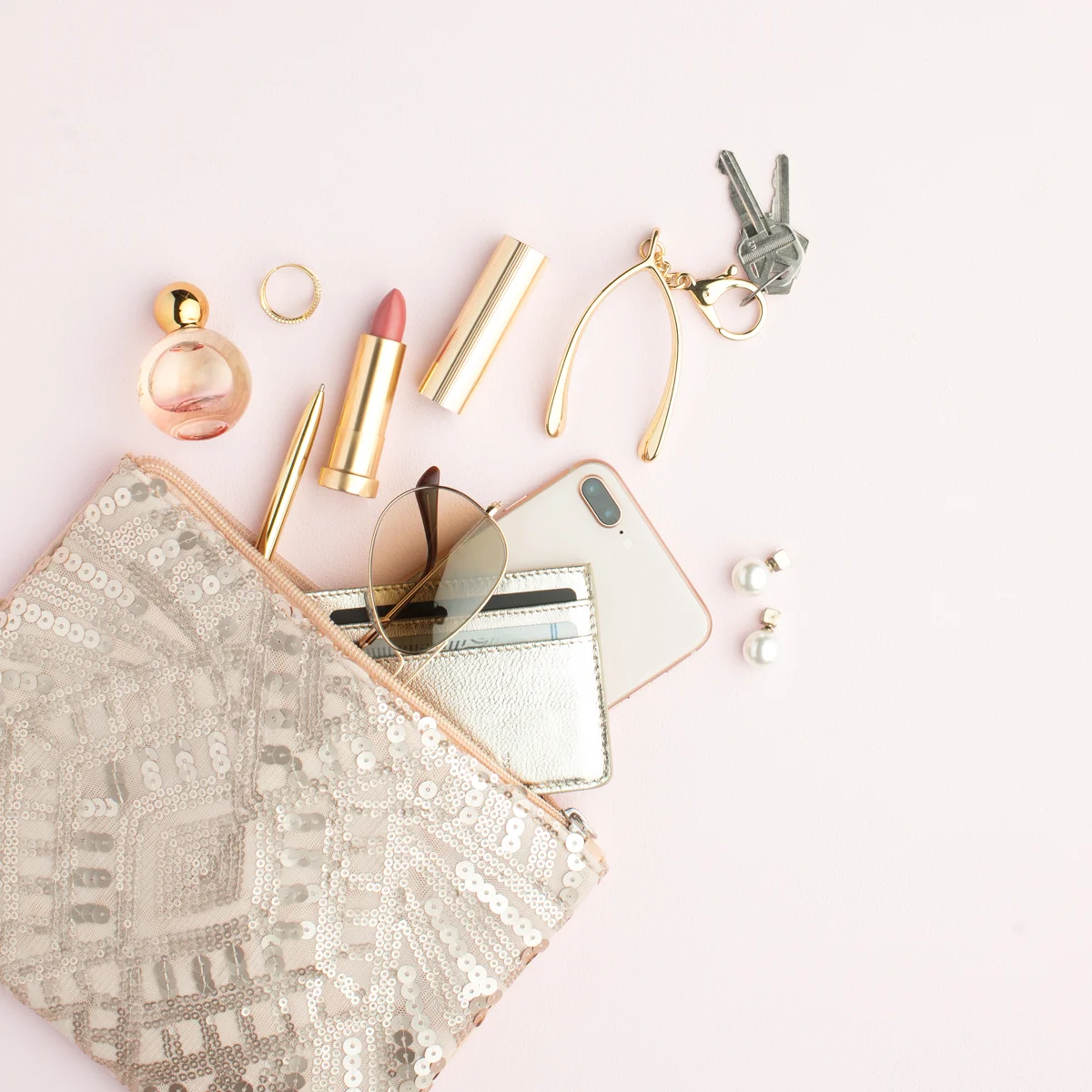The One Person You Can't Afford to Lose
/GUEST POST BY MICHELE CUSHATT
The criticism came via text. And, like most criticism, when I least expected it.
With a casual glance at my phone screen, I anticipated the flash of a child’s name or my husband’s name. Instead, an acquaintance.
Then, the words. Long paragraphs of them. Painful words. Words stinging with accusation, disappointment, judgment. I looked at the screen stunned, confused. I didn’t understand the source. The words burned like poison as I swallowed them whole.
I felt sick.
Within seconds, I shook myself from my shock and jumped into action.
I need to fix this!
Without stopping to contemplate niggling questions and future consequences, my fingers flew over a miniature keyboard, typing apologies and explanations. I felt feverish, desperate to save the relationship at whatever cost.
Whether from my history as a nurse or my current profession small business owner and author, I knew what to do: Assess, diagnose, treat. My task was simple: To identify the needs of the person right in front of me, and then to work hard to meet those needs. That’s what I do. What I’ve always done. As long as I can remember.
Thus, for the following forty-eight hours, I texted and emailed, reassured and apologized. Again and again.
I didn’t want to lose this relationship. Couldn’t lose it.
It wasn’t until emotional exhaustion and sleepless nights slowed me enough that I stopped to think about what happened.
Wait. What was that all about?
The truth is, I knew I hadn’t done anything wrong. Not a thing. And yet I reacted as someone guilty of a federal crime. Before I could stop to consider the facts, I assumed the position of the condemned, became a person I knew in my heart I wasn’t. I morphed into someone I didn’t recognize to save a relationship that was difficult at best, unhealthy and damaging at worst. And that fact left me equally devastated. And not a little bit angry.
Although scenarios vary, I’ve played a role in similar scenes throughout my life. Whether it’s a disappointed reader, a frustrated customer, or a disgruntled family member, I exhaust myself trying to preserve relationship regardless of the facts or cost. Many times my drive has absolutely nothing to do with any external expectations. Instead, I become a slave to my own perfectionism, busyness, need for achievement and affirmation.
This forces me to face a hard reality. My real full-time job isn’t writing books and speaking.
My real full-time job is proving I’m enough.
It’s important to note that, early on, this served me well. It made me a type-A workhorse who accomplished more than her share in a twenty-four-hour day. I started businesses, mothered six children, volunteered in my community. Like coal into diamonds, the intense pressure—from within and without—forged me into a woman of high-standards, excellent performance, and absolute dependability.
But it also forged something less attractive: Lostness.
A woman who didn’t know who she was anymore.
A chameleon skilled at adapting to her environment but who no longer felt at home in her own skin.
Although such a revelation is painful in the public realm, I find courage in this truth:
I’m not the only one.
Through my social media account, Facebook live videos and blog comments, I hear from scores of other women who feel extraordinary pressure to measure up. Even so, in spite of their effort and exhaustion, many believe they’re failing.
No one is satisfied; everyone is disappointed. Not the least of whom is herself.
The problem isn’t a desire to meet needs and serve those around us. The problem is thinking we must do that at the cost of ourselves.
LET ME EXPLAIN:
Deep at our core—wired into our DNA by our Creator—is a desire to be loved, wanted, valued. It’s instinctual, a force that drives us whether or not we’re aware of it. Thus, we learned early on, to scan our environment to find the best way to get that kind of belonging. We decide what those around us need, and then we set out to become the kind of person who can make that happen.
We become experts at everyone else, and strangers to ourselves. When just the opposite is needed.
My friend, Cheri, recently told me,
“I began to be loved when I started being myself.”
Stunned, I sat with her words for a day or two, letting them sink deep into tissue and marrow, changing me from the inside out. I thought the only way to “close the deal” and find love was to be what everyone else wanted me to be. But what she was saying was just the opposite:
I first needed to get absolutely clear about who I am. Only then would I be able to offer anything to those around me.
The world needs YOU. Not some made-to-order offering. Not some replica of someone else or a stripped-down, department store dummy.
THE WORLD NEEDS YOU. AND YOU NEED YOU.
In all the serving and satisfying and loving those standing right in front of you, the real person you can’t afford to lose is yourself.
I’m not talking about your talents or appearance, your roles or career or relationships.
YOU. The purest, truest you. The you that isn’t poisoned by criticism or puffed up with praise. The YOU that was present at your birth when you could do nothing but receive. And the YOU that will be present at your last breath, when all you can do is let go.
That’s the person you can’t afford to lose.
So how do you find her again? And how do you keep her from getting lost in all the busyness and achievement, criticism and success? Here are a few tips for staying grounded in who you are:
- SLOW DOWN / Breathe. You don’t need to always being doing something. Being works, too. Stop proving and striving and earning. Be you.
- OWN YOUR STORY / Like a narrator to a movie, catalogue the experience of your life. Write it down in a journal, diagram it on a timeline. Take a long, hard look at the experiences, circumstances and people that have crafted your narrative. You are the central character in that story. With both ruthless self-awareness and deep compassion, get to know her, walk alongside her, and understand how and why she’s become YOU.
- ACKNOWLEDGE YOUR HUMANITY / You are flawed. That’s part of the deal. Own it. Accept it. Apologize when appropriate. And move forward. It’s that hard. And that simple.
- INVEST IN YOUR INNER LIFE / This isn’t optional; it’s essential. Your emotions and spirituality are as much a part of you as your height and hair color. A life is built from the inside out, not the other way around. Pray. Meditate. Enlist the expertise of a counselor. Heal. Grow.
- CULTIVATE SAFE RELATIONSHIPS / No, your Facebook account doesn’t count. I’m talking about a small circle of trusted friends who know your most honest self—the good, bad and ugly—and choose to be in relationship with you. And you choose to be in relationship with them. These relationships are honest, reciprocal, and comfortable with both setting and respecting boundaries. And they are life-giving. Catholic priest Henri Nouwen described these friends as “holding a long line that girds your waist.” They can “pull you back when its members see that you are forgetting why you were sent out.”[1]
Remember, identity isn’t built. It’s received. No unexpected text message filled with painful criticism can take it away. That means, in spite of your doubts and questions, you are enough. Exactly as you are.
want to read more from Michele?
Need a reminder of who you are? Download your FREE I Am Manifesto here, and discover you are not alone.
Earlier this year, Michele Cushatt released her second book, I Am: A 60-day Journey to Knowing Who You Are Because of Who He Is …And, starting October 2, she’ll be leading hundreds of women in an online conversation about identity and the only road to knowing who you really are. Grab a friend and join in! (Sign Up Here)
[1] Nouwen, Henri J. M. The Inner Voice of Love. Doubleday: New York. 1996, pg. 45-46.
Michele Cushatt has spoken internationally about identity and finding your truest self at both corporate and ministry events, including such notable venues as Women of Faith, Focus on the Family, and Compassion International. From 2014 to 2016, she cohosted the popular leadership podcast This Is Your Life With Michael Hyatt, including nearly 100 episodes and millions of downloads. Michele and her husband, Troy, live in Denver, Colorado with their six children, ages 10 to 24. Follow @MicheleCushatt on Facebook, Instagram, and Twitter. Find out more about Michele’s incredible story at MicheleCushatt.com.
















